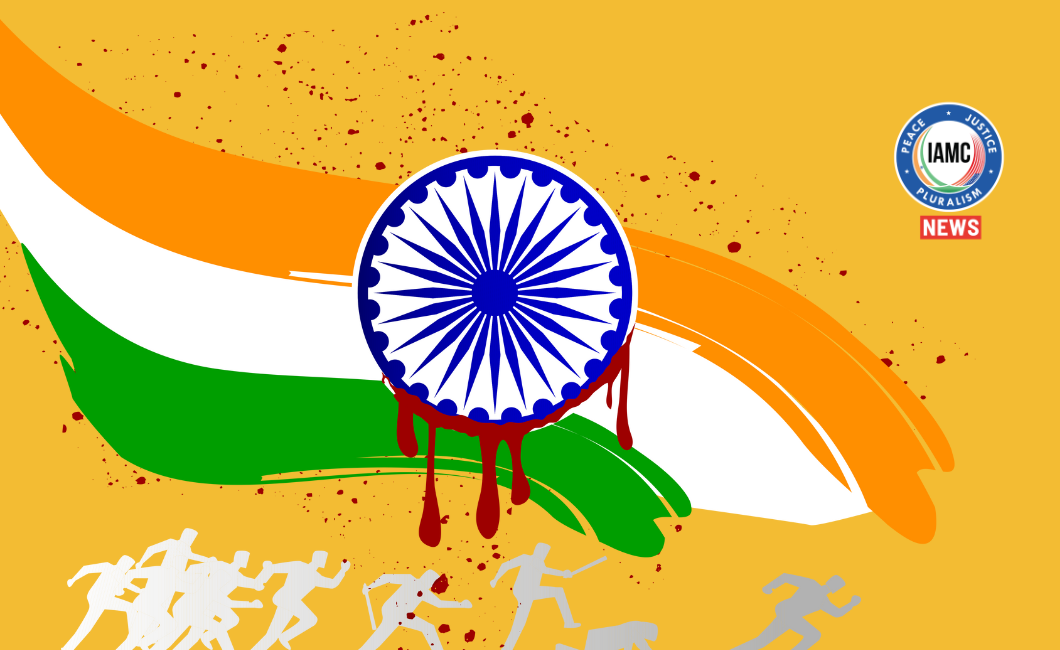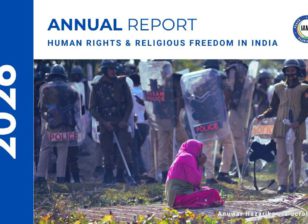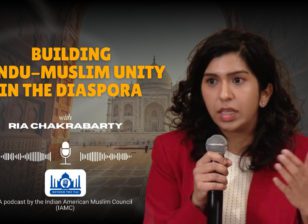British government found Modi responsible for climate of impunity in 2002 massacre: BBC
A team sent by the British government to inquire into the anti-Muslim massacre in Gujarat, in which nearly 2,000 were killed in 2002, found that Narendra Modi, who was then the state’s chief minister, was “directly responsible for a climate of impunity” that led to the violence, a BBC documentary has revealed.
The documentary, titled The Modi Question, has been removed from YouTube, most likely under pressure from Modi, who is now India’s prime minister
Large-scale anti-Muslim violence erupted in Gujarat in February and March 2002 and resulted in the death of over 2,000 people, mostly Muslims. The report said that the systematic campaign of violence had “all the hallmarks of ethnic cleansing.”
The British team found Modi had prevented Gujarat Police from stopping violence targeted at Muslims, the BBC documentary said.
Their report also found that Hindu extremist mobs and their allies “could not have inflicted so much damage without the climate of impunity created by the state government.”
“…Modi had played a pretty active part in pulling back the police and in tacitly encouraging the Hindu extremists,” Jack Straw, who was British foreign secretary at the time, told BBC.
In the wake of the 2002 Gujarat massacre, the United Kingdom imposed a diplomatic ban on Modi for his failure to stop the violence. From 2005 to 2014, Modi was also denied a visa to the United States for the same reason.
Hijab-wearing Muslim students denied entry into college in BJP-ruled Uttar Pradesh
One year since the Hindu supremacist Bharatiya Janata Party (BJP)-ruled Karnataka state imposed a ban on hijab in educational institutions, the islamophobic ban has now reached another BJP-ruled state – Uttar Pradesh.
Several Muslim students of a college in Moradabad district were denied entry into a college for wearing hijab and were being compelled by college authorities to remove it before entering the campus.
College authorities have cited that the Hijab violates their new “dress code.”
Earlier in January 2022, the Karnataka state’s Hijab ban unleashed widespread protests by Muslim students and the community, along with global condemnation.
A report documenting the devastating effect of the ban found that Muslim women students continue to struggle to pursue their education and face grave consequences such as psychological distress and isolation. As visibly Muslim women, these students have also borne the brunt of a climate of hate, hostility, and misinformation.
Kashmir recorded highest internet shutdowns in the world last year: Study
Jammu and Kashmir recorded internet shutdowns 24 times last year – the highest in a single region in the world – a study by Netherland-based Surfshark, a virtual private network provider, showed.
Surfshark said that residents of Jammu and Kashmir have been facing “unprecedented internet restrictions” since 2019 after the revocation of the region’s special autonomous status in the Constitution and even its statehood.
Residents experienced a complete blackout from August 2019 to January 2020, after which 2G internet was allowed. The authorities restored 4G services after almost 18 months.
“These can be devastating and extremely dangerous, especially during wartime, protests, or violent government repressions. Internet restrictions can make it difficult or even impossible to mobilize people for the defense of democracy, contact loved ones, access news sites, and spread information to the outside world on what’s happening,” Gabriele Racaityte-Krasauske, a spokesperson of Surfshark, said.
Since the revocation of the special Constitutional status for Jammu and Kashmir, the Indian government has drastically intensified the repression of its people, including journalists and human rights defenders by subjecting them to multiple human rights violations, a report by Amnesty International found ASA2059592022ENGLISH.




